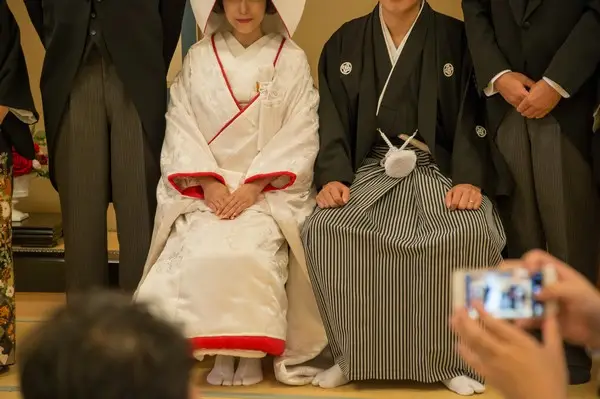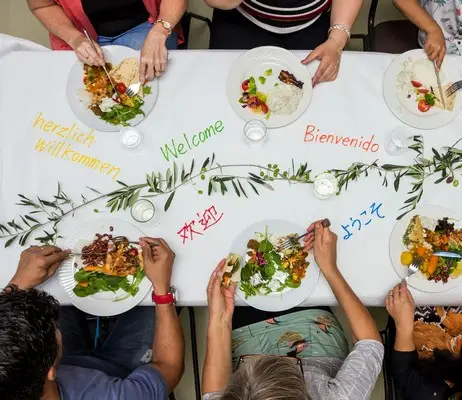Table of Contents
- The Nuclear Family: A Traditional Cornerstone
- Extended Families: The Importance of Kinship Networks
- Reconstituted Families: Navigating New Dynamics
- Lone Parent Families: Challenges and Resilience
- Single-Sex Families: Redefining Family Norms
- The Sociological Significance of Family Diversity
- Conclusion
Family structures have long been a fundamental unit of social organisation, serving as the cornerstone for individual development and societal cohesion. In the UK, as in many parts of the world, the concept of family has evolved significantly, reflecting broader changes in society. This article provides a comprehensive overview of the different types of family structures, including nuclear, extended, reconstituted, lone parent, and single-sex families. We will explore the significance of each type within both UK and global contexts.
The Nuclear Family: A Traditional Cornerstone
The nuclear family, often considered the traditional family structure, consists of two parents and their biological or adopted children living together in a single household. This family form has been dominant in many societies, particularly in the post-World War II era when social policies and economic conditions in the UK favoured the establishment of such units. The nuclear family has often been idealised in media and culture as the ‘normal’ or ‘ideal’ family form, promoting a model of a stable, economically self-sufficient household with clearly defined gender roles.
In the UK, the nuclear family became especially prominent during the mid-20th century, bolstered by a social and economic environment that supported a male breadwinner model, with women primarily responsible for domestic duties and child-rearing. This family structure was seen as essential for the socialisation of children and the stabilisation of adult personalities, as famously argued by functionalist sociologist Talcott Parsons. According to Parsons, the nuclear family plays a critical role in maintaining societal stability by transmitting cultural norms and values from one generation to the next.
However, the prominence of the nuclear family has waned in recent decades as society has become more diverse and inclusive. Economic pressures, shifting gender roles, and changing societal values have all contributed to the diversification of family forms. In contemporary UK society, while the nuclear family remains common, it is no longer the predominant family structure, reflecting broader societal changes that embrace a wider variety of family arrangements.
Extended Families: The Importance of Kinship Networks
Extended families, which include relatives beyond the nuclear unit such as grandparents, aunts, uncles, and cousins, have historically been a vital form of family organisation in many societies. In an extended family, multiple generations may live together or maintain close, supportive relationships even if they do not share a household. This family structure is particularly prevalent in many non-Western societies, where it serves as a critical social safety net, providing economic support, childcare, and care for the elderly.
In the UK, the role of the extended family has shifted over time. While extended family networks were more common in pre-industrial Britain, the rise of industrialisation and urbanisation in the 19th and 20th centuries led to the nuclear family becoming more typical. However, extended families remain significant, particularly in certain cultural and ethnic communities where strong kinship ties are maintained.
The extended family plays a crucial role in providing support systems that extend beyond the immediate household. For example, in many South Asian communities in the UK, extended families continue to play an essential role in daily life, from providing childcare to supporting new immigrants. Additionally, the increasing number of dual-income households has led some families to rely more heavily on extended family members for support, particularly in childcare.
Extended families are also important in a global context, particularly in societies where welfare systems are less developed, and families must rely on each other for economic and social support. In many parts of the world, the extended family remains the primary source of security and stability, highlighting the diversity of family structures globally.
Reconstituted Families: Navigating New Dynamics
Reconstituted families, also known as blended families, are formed when one or both partners in a new marriage or cohabiting relationship bring children from previous relationships into the new family unit. This family structure has become increasingly common in the UK, reflecting broader societal trends such as rising divorce rates and the acceptance of remarriage and cohabitation.
The dynamics within reconstituted families can be complex, as relationships must be renegotiated and new roles established. For instance, step-parents often face the challenge of establishing authority and building relationships with their stepchildren, while children must adjust to new family members and changes in family routines. These dynamics can be further complicated by ongoing relationships with non-residential parents and their extended families.
Despite these challenges, reconstituted families can provide a supportive and nurturing environment for children and adults alike. Sociologists have noted that successful reconstituted families often demonstrate high levels of communication, flexibility, and a commitment to building strong family bonds. These families highlight the adaptability of family structures and the ways in which individuals can create new, stable family environments following the breakdown of previous relationships.
In a global context, reconstituted families are becoming more common as divorce and remarriage rates rise worldwide. This trend reflects broader changes in social attitudes towards marriage, family, and individual autonomy, underscoring the increasing diversity of family forms.
Lone Parent Families: Challenges and Resilience
Get the full article AD FREE. Join now for full access to all premium articles.
View Plans & Subscribe Already a member? Log in.





